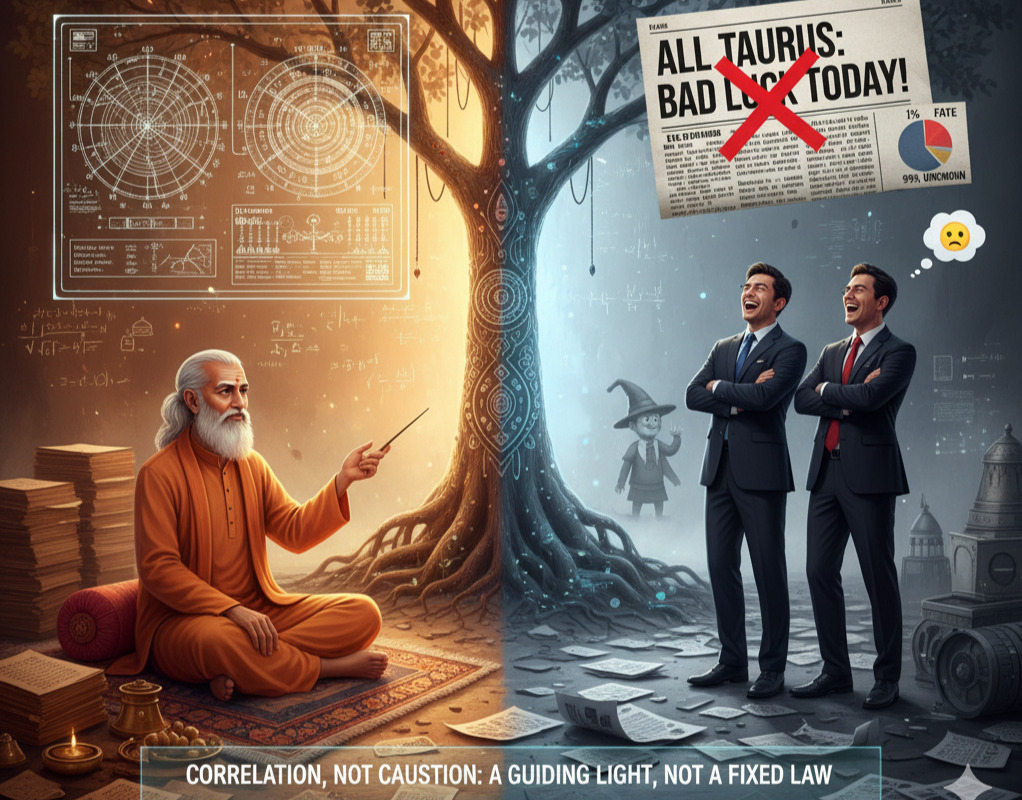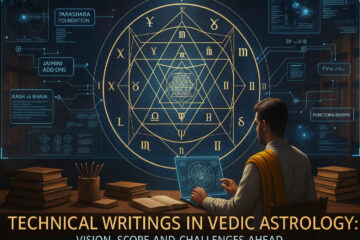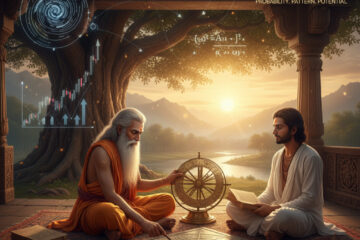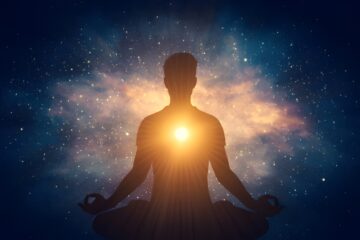Vedic astrology criticism is loud, emotional, and honestly, sometimes deserved. Jyotish — the classical system of timing and karmic pattern analysis — is one of the most sophisticated interpretive sciences on Earth, yet it gets painted as superstition, scam work, or romantic fatalism. Part of that comes from lazy attacks. Part of it comes from lazy astrology.
To understand why Vedic astrology gets bad press, we have to separate actual Jyotish from what is sold to the public. Jyotish in its true form is mathematical, layered, and probabilistic. The mass-market version is shallow, deterministic, and sold as fear or fantasy. The gap between those two versions is exactly where most criticism lives.
This article is not here to preach blind faith. It’s here to clarify what Jyotish actually claims, what it doesn’t claim, and why skeptics and practitioners both distort it. If you’re serious about studying astrology as a timing model rather than as a wish machine, this is your roadmap.
1. Lack of Depth and Misrepresentation
One core reason behind Vedic astrology criticism is that most people never encounter real Jyotish. They encounter performance. The truth is that Vedic astrology demands thousands of hours of disciplined study: house rulerships, yogas, dashas, divisional charts, aspects, dignities, navamsa strength, transits, desh–kaal–paristhiti (place–time–circumstance), and more. This is not “your Sun is in Taurus so you’re stubborn.”
But a lot of modern “astrology services” skip the work. They collapse everything into simplistic, deterministic lines: “You will marry in 2027,” “This dasha will ruin your health,” “You must wear this gem or disaster will happen.” That tone sounds dramatic, and drama sells. It also destroys credibility.
Here’s the actual Parashari logic: astrology is a probabilistic timing model, not a courtroom verdict. The chart shows likely themes, not forced behavior. When an astrologer pretends otherwise, they are not doing Jyotish — they are doing theater. And the public judges the entire field based on that theater, fueling even more Vedic astrology criticism.
2. Complexity and Computational Difficulty
Jyotish is math-heavy. Before software, astrologers hand-calculated planetary longitudes, divisional charts (like D9, D10), and dashas. If you’ve ever tried to erect a full chart from scratch using a panchang and tables of houses, you know this wasn’t casual hobby work. It was astronomy plus arithmetic plus patience.
Inaccurate calculation = inaccurate interpretation. And inaccurate interpretation = another round of “astrology is nonsense.” A lot of old-school public skepticism — and a lot of modern Vedic astrology criticism — comes from eras where small math errors snowballed into huge interpretive mistakes.
Today, software handles the arithmetic. That solves the calculation problem but leaves another: people assume “the computer gave a chart, therefore my reading is legit.” Except software can’t synthesize nuance. It can’t ask, “Does this yoga repeat in navamsa? Is this planet actually functionally benefic for the lagna? Is this timing window softened by Jupiter’s transit?” Without that human judgment, the reading still falls flat.
3. “If It’s Not Deterministic, It’s Fake” — Misunderstanding the Model
Another big driver of Vedic astrology criticism is a false expectation: if astrology can’t give exact events with 100% certainty, it must be fake. But notice how unfair that standard is. Meteorology is not 100%. Macroeconomic forecasting is not 100%. Medical prognosis is not 100%. All of those fields still guide real decisions, every day.
Astrology works the same way. The chart gives you recurring karmic patterns (what tends to show up in your life), the dashas tell you when certain planets become “louder,” and transits dispose (deliver) those themes into lived reality. Jyotish maps probability windows of stress, growth, career pivot, relationship shifts, relocation energy, spiritual ripening, and so on. It doesn’t script your exact Tuesday afternoon.
If you think astrology should be a magic vending machine of answers, you will reject it. If you understand it as a timing intelligence system — which is how classical Jyotish presents itself — you’ll see why serious practitioners defend it against blanket Vedic astrology criticism.
4. Tabloid Sun-Sign Horoscopes Damaged the Brand
This part is brutal and important. The single greatest PR disaster in astrology history is the “daily horoscope.” You’ve seen it: “Aries: Today you’ll have a surprise in love.” “Virgo: Money luck is coming.” This is the opposite of Jyotish.
Real Jyotish uses your exact birth time and birthplace to generate a chart with twelve houses, nine grahas (Sun, Moon, Mars, Mercury, Jupiter, Venus, Saturn, Rahu, Ketu), yogas, strengths, aspects, dashas, and divisional charts. Your Moon’s nakshatra matters. Your lagna degree matters. Plus, your Venus in the navamsa matters. No one else on Earth has that exact fingerprint.
Sun-sign astrology, by contrast, takes one twelfth of the zodiac and pretends it applies to ~8% of humanity identically. Of course that looks like fluff. It is fluff. And then critics point to that fluff and go, “See? Astrology is childish.” This is how mass media caricature became the public face of a technically serious system. It’s no surprise “Vedic astrology criticism” became a default position in rational circles.
5. “Men of Science” and Closed Skepticism
Respectfully: one reason you hear aggressive Vedic astrology criticism in academic or scientific spaces is not because everyone in those spaces studied Jyotish and rejected it. It’s often because they never studied it at all and reject it on principle. That is not scientific method — that is social signaling.
A scientist, by definition, tests hypotheses. An honest skeptic says, “Show me the model. Show me repeatability and failure modes. Show me where it works, where it breaks.” That’s healthy. Jyotish can have that conversation. What is not healthy is, “I don’t understand your system, therefore it’s fraud.” That attitude is ego, not empiricism.
It’s also historically naïve. Many respected astronomers and mathematicians in the pre-modern world — the same people who gave us celestial mechanics, calendar science, and eclipse prediction — practiced some form of astrology. They did not see a contradiction between astronomy and Jyotish; they saw continuity. They treated the planets as cosmic clocks marking karmic timing, not magic puppeteers moving human limbs.
6. From Guidance to Commerce
Classical Jyotish is literally called the science of light. The purpose of that light was guidance: to illuminate dharma, timing, and karmic tendencies so the native could act with maturity. The astrologer in that model was part counselor, part timing analyst, part spiritual advisor. The tone was, “Here’s what’s ripening. Here’s where effort helps. Here’s what patience will save you from.”
Modern commercialization changed that. For some practitioners, astrology became a fear economy: “You have this dosha, donate this much,” “Your marriage will fail unless you perform this ritual,” “Wear this gemstone or you’ll suffer,” “Rahu is destroying you, I can fix it.” That is manipulation, not Jyotish. And yes, critics are right to attack that. That behavior earns every ounce of Vedic astrology criticism it gets.
But notice the subtlety: corruption in practice doesn’t invalidate the core system. It exposes the ethics of the practitioner. A bad doctor does not mean medicine is fake. A bad astrologer does not mean astrology is fake. It means you need better screening.
7. Correlation, Not Causation
One of the most misunderstood philosophical points in Jyotish — and a source of constant Vedic astrology criticism — is causality. Skeptics say, “Planets can’t possibly beam mind-control rays at you.” Correct. They don’t. That’s not how serious Jyotish talks about planets.
In Jyotish, grahas are time-markers. They are symbolic clocks. Their positions reflect karmic timing cycles. The Moon, for example, rules emotional tone. Many hospitals, police departments, and psych wards informally admit that agitation spikes near full Moons. That does not prove “the Moon made him do it.” It shows correlation between lunar cycle and nervous system reactivity. Jyotish pays attention to that correlation and encodes it.
When we say Mars aspects the 7th and creates tension in relationships, we’re not saying “Mars is forcing you to yell at your partner like a puppet master.” We’re saying, “This placement corresponds to patterns of assertiveness, impatience, or heat that tend to emerge in one-on-one dynamics. Please learn emotional regulation, not domination.” That is guidance, not doom.
8. Free Will Still Exists
One accusation behind Vedic astrology criticism is “astrology kills free will.” But classical teaching does not say you have zero agency. It says you were born with a certain karmic toolkit, certain recurring lessons, certain timings, and certain stress windows. You don’t control the weather pattern — but you absolutely control how you move through it.
In Jyotish terms: dasha proposes, transit disposes, but you respond. Your Saturn Mahadasha may demand responsibility, patience, humility, structure. You can either resist that and suffer more, or lean in and mature. The chart shows the curriculum. You still choose how you attend class.
Mature Jyotish never says “you’re doomed.” It says “you are being trained.” That is a huge difference — and it’s a difference skeptics often miss when they paint all astrology as fatalism.
Important Notes
Why do many astrologers lose credibility over time?
Because credibility in Jyotish requires both calculation accuracy and interpretive maturity. Many readers skip the math, skip divisional chart confirmation, skip functional benefic vs functional malefic analysis, and jump straight to “X will happen.” When that fails, clients lose trust and fuel more Vedic astrology criticism. Ethical astrologers speak in probabilities and conditions, not absolutes.
How did newspaper horoscopes damage astrology’s image?
Sun-sign columns tell millions of people the same one-line fate, which is absurd from a Jyotish perspective. A real chart is unique down to minutes and degrees. Reducing that to “all Geminis will argue today” made astrology look childish to serious thinkers and handed skeptics an easy target.
Why do scientifically trained people dismiss astrology?
Some scientists dismiss without testing. That’s not science — that’s bias. Real skepticism is welcome in Jyotish: challenge the timing logic, study dashas, look at repeated yogas in successful charts vs unsuccessful ones, and track correlation. Rejection without study is posturing, not inquiry.
Is astrology deterministic or probabilistic?
Probabilistic. Vedic astrology maps tendencies, stress cycles, and windows of opportunity. It’s like a weather forecast for karma. You still have free will. You still choose conduct. Jyotish is guidance, not a legal sentence.
Why do charlatans thrive in this field?
People are vulnerable around health, marriage, money, and fear. Unethical practitioners exploit that. The antidote is education: learn basic chart logic yourself (functional benefic vs functional malefic, dignity, dasha timing) so you can tell the difference between guidance and emotional blackmail.
Do planets cause events or correspond to them?
They correspond. Planets mark time windows. They reflect karmic weather. They do not force you like puppets. This “correlation not causation” view is one of the most important philosophical corrections students must internalize to understand real Jyotish.
FAQ
Why is astrology compared to weather or market forecasting?
Because all three analyze complex systems and talk in probabilities. Meteorology says, “80% chance of storms tomorrow.” Finance says, “High volatility risk this quarter.” Jyotish says, “High relationship pressure this Venus–Mars period.” None of these are superstition. They’re scenario maps.
What separates true Jyotish from fortune-telling?
True Jyotish uses sidereal astronomy, divisional charts, yogas, dashas, transits, and context (desh–kaal–paristhiti). Fortune-telling skips all that and sells yes/no answers. One is analysis. The other is theater.
Can skepticism and astrology coexist?
Yes — and they should. Healthy skepticism keeps Jyotish honest. Blind belief and blind denial are equally unhelpful. The best students of Jyotish test everything. They watch how Saturn dasha actually behaves in real charts. They study repetition. And, they ask for evidence and timing and track outcomes.
If astrology has validity, why do predictions still fail sometimes?
Same reason weather and finance fail sometimes: messy variables. Birth time can be off by three minutes and shift the navamsa. A dasha lord may be strong in theory but blocked by combustion. The native may exercise strong free will and make ethical choices that break destructive patterns. Jyotish models tendency and timing. Life is still alive and interactive.
Keep Learning with Much Needed Astro
If you’ve ever felt torn between loving astrology and feeling embarrassed by how it’s marketed, welcome — you’re exactly who we write for. Much Needed Astro treats Jyotish as a timing intelligence system, not a doom script and not a fairy tale. We address Vedic astrology criticism head-on because honest discussion is how respect is rebuilt.
If you’re serious about learning Jyotish properly — dignity, yogas, dashas, divisional charts, functional benefics, and how to read karma without fear-mongering — stay with Much Needed Astro. No fluff, no shame tactics, just clarity you can actually use.
“`




